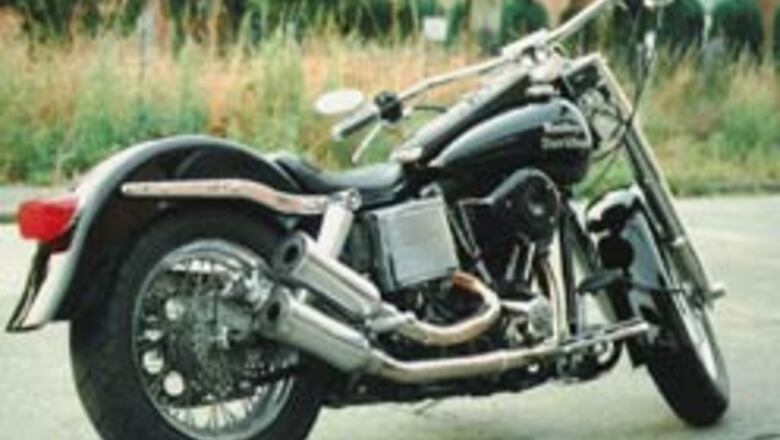
views
Milwaukee/ Vietnam: With its foray into China under way and an eye toward boosting sales overseas, Harley-Davidson is looking to sell its iconic motorcycles in India and Vietnam.
Representatives from the company recently traveled to both countries to meet with government officials, said Tim Hoelter, vice president of government affairs for Harley.
The Milwaukee-based company is working with US officials as well to lessen what Harley sees as two major barriers to entering India; stringent emissions standards and tariffs of more than 90 per cent.
Vietnam recently agreed to do away with an outright ban on large motorcycles and lessen its tariffs more than 60 per cent over the coming years, as part of a trade pact with the United States, he said.
Hoelter declined to give a time frame for entry into either market but said Harley is farther along in its research on India, which he said has the world's second largest market of two-wheeler motorcycles.
"We believe with the closer ties between our two countries and the investment that certain other firms are making in India that there would be a real interest in Harley-Davidson's brand and the opportunity to ride one of our 'hogs' over there," Hoelter said.
The company is turning its attention to foreign markets as it anticipates that international sales will continue to outpace domestic ones. Foreign sales make up 20 per cent of the company's sales and grew by 15 percent last year.
That's more than three times last year's rate of domestic sales growth, 4.2 per cent.
CEO Jim Ziemer said earlier this year the motorcycle maker sees solid, long-term potential in the Asian Pacific and Latin American markets.
A dealership in Beijing opened in April, marking the company's first venture there since at least World War II. So far, the market has been strong, especially for apparel, Hoelter said.
"We're very pleased with the results and the dealer's having trouble stocking T-shirts," he said. "They're flying off the shelves," he added.
Hoelter said the company considers a trade negotiation reached earlier this month between the United States and Vietnam to be key to the entry into that country, which is considered one of Asia's fastest growing markets.
The tentative trade agreement which could be approved next month means Vietnam would relax trade barriers to U.S. products, a requirement it must fulfill to become a member of the World Trade Organization.
Congress must approve supporting legislation for the pact to take effect.
The communist country agreed to lift an outright ban on large displacement motorcycles, relax distribution restrictions and reduce tariffs on heavyweight motorcycles.
The penchant for Americana in that growing market and the use of motorcycles are both strong, Hoelter said.
PAGE_BREAK
"If you go to Hanoi or Ho Chi Minh City you will notice the virtual unceasing rivers of two-wheelers," he said.
Besides India's bureaucratic hurdles, that country also poses a different problem _ changing the mind-set of many Indians who view motorcycles as solely for transportation, he said.
Smaller two-wheeler bikes are seen as entry-level vehicles, he said, so the company would have to show people that motorcycles can be for leisure too.
"It would take some time to position motorcycles also as a leisure vehicle that one could actually enjoy versus endure in congested, commuting traffic," he said.
India would probably prove more favorable to Harley-Davidson than Vietnam, just because of the country's population, said Greg Badishkanian, leisure vehicle analyst with Citigroup.
However, it will most likely be a long time before the motorcycles enter the market, he said.
"I think India could be a meaningful opportunity but it is pretty far in the future and there's so many issues and opportunities facing them in the near term that it probably won't have a real impact on the stock over the next year or two," he said.



















Comments
0 comment